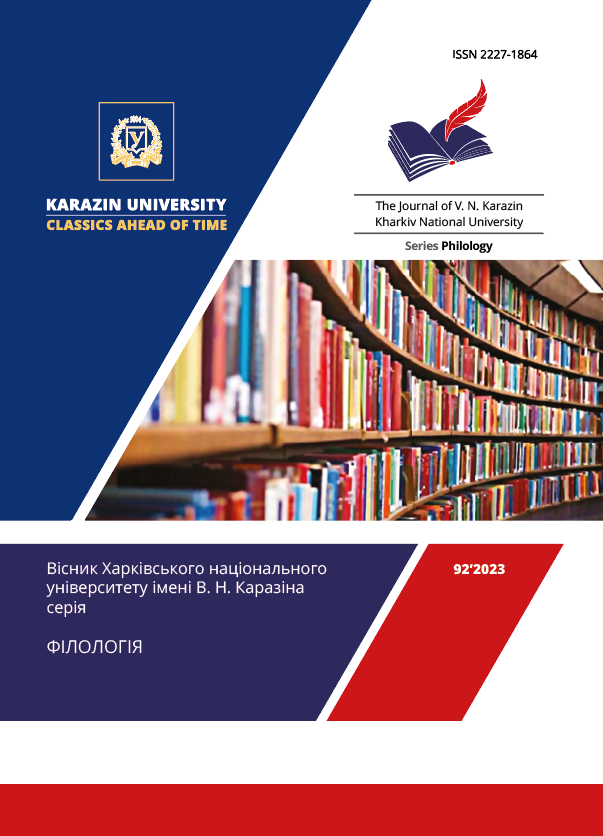Модернізм і авангардизм: міркування щодо розрізнення понять
Анотація
У статті йдеться про відмінність між модернізмом і авангардизмом як культурно-історичними й філософсько-естетичними феноменами.
Метою статті є показати головну розбіжність між модернізмом і авангардизмом, акцентуючи увагу на рецепції і ставленні їх до реальної дійсності.
Дослідницька методика полягає у застосуванні еволюційного методу (за класифікацією методів В. М. Перетца) на історико[1]літературний період 10-х 20-х років ХХ ст.., зокрема в аспекті його розгляду через співвідношення і взаємодію його знакових літературно-мистецьких феноменів модернізму і авангардизму. Еволюційний метод дозволяє дослідити природний розвиток явищ, від їхнього зародження до становлення і розвитку. Красне письменство розглядається в динаміці його історичного розвитку з урахуванням причинно-наслідкових зв’язків між явищами. Таким чином, історія літератури є відображенням літературної еволюції на ґрунті загальної еволюції суспільства й у зв’язку з іншими окремими еволюціями, які на неї впливали.
Окрім еволюційного використано також метод системного аналізу, історико-генетичний та порівняльно-зіставний наукові методи.
Наукова новизна полягає у спробі диференціювати поняття модернізму і авангардизму на підставі протилежної рецепції ними революційної дійсності і в кардинальній різниці у ставленні до неї, а також в аналізі і систематизації вже існуючих наукових позицій щодо зазначеної проблеми.
Доведено, що модернізм, навіть у зрілій фазі, залишався в опозиції до реальної дійсності, зосередивши увагу на самоцінності людини й мистецтва, тоді як авангардизм, узявши на озброєння її руйнівну енергію, динаміку, войовничість, технічну зухвалість, трансформував все це у власну естетичну програму. Відсутність гармонійного зв’язку між людиною і природою, домінування матеріальних цінностей над духовними, технократизацію, мілітаризм і бунт авангардизм перетворив на свою культурно-мистецьку парадигму, зробивши все це своїм філософсько-релігійним світоглядом. З’ясовано, що авангардизм з усім розмаїттям його течій є багатоликим віддзеркаленням цієї суперечливої революційної агресивної дійсності. Більше того, він є її породженням, її болем і рупором водночас.
Перспективи подальших досліджень полягають у застосуванні еволюційного методу при здійсненні аналізу поетичних творів епохи зрілого модернізму, з метою практичного підтвердження теоретичних міркувань, що тут пропонуються.
Завантаження
Посилання
Golovchenko N. I. Literature of modernism: artistic style, method of study. Study guide. Kyiv: Education of Ukraine, 2011. 236 p.
Devdyuk I. V. World literature of the 20th century. Methodological recommendations for lectures and practical classes. Ivano-Frankivsk: Publisher G.M. Kushnir, 2017. 70 p.
Kozlyk I. Literary analysis of an artistic text/work in the conditions of modern interdisciplinary and interdisciplinary interaction. Brno. 2020. 235 p.
Kolisnychenko A. V. Myth in the literature of American modernism // Scientific Bulletin of the Mykolaiv National University named after V. O. Sukhomlynskyi. Philological sciences (literary studies): coll. of science works No. 1 (21), April 2018. Mykolaiv: MNU named after V. O. Sukhomlynskyi, 2018. P. 73-78.
Marinetti Filippo Tommaso (Italy). Manifesto of Futurism. (From the Italian Oleksandr Mokrovolskyi) // Universe. 2009. N. 9-10.
Moklytsia M. Modernism – a theoretical and psychological problem // Word and Time: science- theory. journal / National Acad. of Sciences of Ukraine, Institute named after T. G. Shevchenko, Nat. Writers' Union of Ukraine. Kyiv, 2001. N. 1. P. 32-38.
Moklytsia, M. V. Modernism in Ukrainian literature of the 20th century: academic. manual for philology students. Kyiv: Condor, 2017. 245 p.
Nalivaiko D.S. On the relationship between "decadence", "modernism", "avant-garde" // Word and time. 1997. N. 11-12. P. 44-48.
Nikolenko O. M. Literature of the first half of the 20th century // Foreign literature in educational institutions. 1998. N. 3. P. 32-36.
Yakovenko S. Romantics, aesthetes, Nietzscheans: Ukrainian and Polish literary criticism of early modernism / rec. : O. Astafiev, V. Morenets; ed.: B. Matiyas; lean : V. Gavrilyuk. Kyiv: Krityka, 2006. 295 p.
Yatsenko T. O., Trygub I. A. Masterpieces of modernism: the study of Ukrainian and foreign literature in the artistic context: the program of a special course. Ternopil: Textbooks and manuals, 2018. 68 p.




